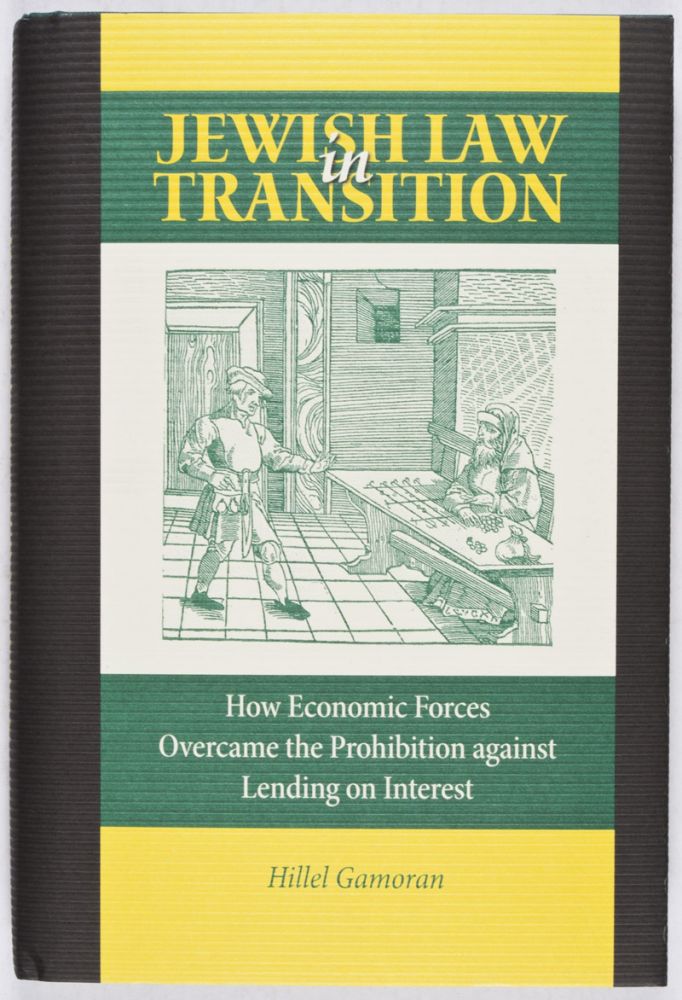Jewish Law in Transition: How Economic Forces Overcame the Prohibition against Lending on Interest
Cincinnati: Hebrew Union College Press, 2008. First edition. Hardcover. Quarto. X, 196pp. Original pictorial wrappers over green cloth with gold lettering on spine. A well-known biblical prohibition strictly forbids Israelites to lend to each other on interest. As formulated in Exodus 22:24, the verse reads, “If you lend to any of my people with you who is poor, you shall not be to him as a creditor, and you shall not exact interest from him.” The intention of this prohibition was to prevent the wealthy from exploiting the unfortunate, though over time it was seen to have consequences for the economic welfare of Jewish society as a whole. As a result, Jewish law (halakhah) has over the centuries relaxed the biblical injunction, allowing interest charges despite the biblical prohibition. In Jewish Law in Transition, Hillel Gamoran seeks to explain how and when a law of such high moral standing collapsed and fell over the course of the centuries. He explores five areas in which the talmudic Rabbis believed that business agreements violated the biblical ban: loans of produce; advance payment for the purchase of goods; buying on credit; mortgages; and investments. In the Bible, consideration is not given to any of these activities. But in postbiblical literature, these issues all arise. How was the biblical law to be applied to situations that had not occurred in biblical times? And how could the Rabbis allow these activities when they were hampered from doing so by the laws against lending on interest? To answer these questions, Gamoran examines the biblical injunction and postulates when it was written, why it was written, and to whom it applied. He then considers the early and later teachers of the Oral Law, the Tannaim and Amoraim, who expanded the ban to apply to various business activities from 70 C.E. to 500 C.E. Finally, for each of the five activities, he explores how the original tannaitic proscriptions were upheld or relaxed over the centuries. Each activity is considered in the period of the Geonim (650–1050), the Rishonim (1000–1500), and the Aharonim (1500–2000), and for each period, Gamoran shows how the Rabbis, through inventive interpretation, struggled with the law and with one another to create the legal fictions necessary for business life to flourish. Wrappers, binding and interior as new. vg. Item #28566
Price: $45.00

